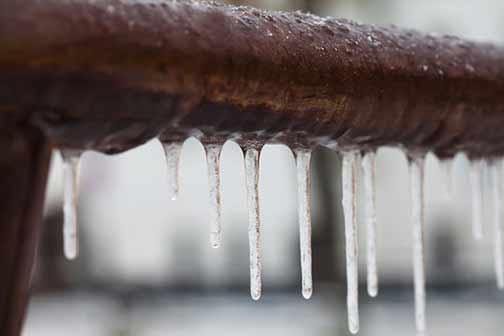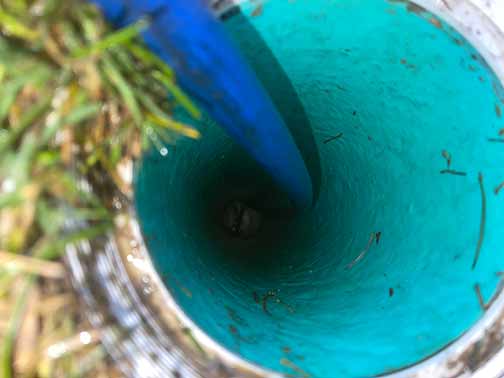
During the winter months, freezing temperatures can have a significant impact on your plumbing system. When the temperature drops, the water within your pipes can freeze, expanding and potentially causing obstructions. This can lead to clogs and consequently, disrupted water flow and even pipe bursts. Understanding the mechanics behind this process is the first step in effectively addressing and preventing frozen pipes from causing clogs.
Identifying the Signs of Frozen Pipes
Identifying the early signs of frozen pipes can save you from extensive damage and costly repairs. Typical indicators include reduced water flow, visible frost on exposed pipes, unusual sounds such as gurgling or clanking, and in extreme cases, complete blockage of water. If you detect any of these signs, it is vital to take prompt action to assess and mitigate the situation before the pipes burst.
Immediate Steps to Take When You Discover Frozen Pipes
Once you detect frozen pipes, timing is crucial. Begin by turning off the water supply in your home to minimize the risk of a pipe burst. Open faucets to relieve any pressure in the pipes and to allow thawed water to escape. Use gentle heat sources like hairdryers, heat lamps, or warm towels to gradually thaw the pipes. Avoid open flames or intense heat, as they can damage the pipes. Continue monitoring water flow and inspect for leaks as the ice melts.
Proper Insulation: A Key Preventative Measure
Properly insulating your pipes is an effective way to prevent them from freezing. Use foam pipe insulation, wrap heat tape around vulnerable pipes, and insulate any exposed sections. Pay special attention to pipes located in unheated areas such as basements, attics, and crawl spaces. Ensuring proper insulation can provide a significant safeguard against freezing temperatures.
Keeping Your Home Warm: Maintaining a Safe Temperature
Maintaining a consistent indoor temperature is another strategy to prevent frozen pipes. During cold weather, keep your thermostat set at a minimum of 55 degrees Fahrenheit, even when you are away from home. Open cabinet doors under sinks and let warm air circulate around the plumbing to keep it from freezing. If you’re leaving home for an extended period, consider draining your pipes to eliminate the risk of water freezing inside them.
Implementing Long Term Plumbing Solutions
In addition to short term fixes, long term plumbing solutions can offer more comprehensive protection against frozen pipes. Relocate exposed pipes to less vulnerable areas, install frost-proof faucets, and upgrade to modern plumbing materials that are more resistant to freezing. Speaking with a professional plumber can help you identify the most effective long-term strategies tailored to your specific plumbing setup.

Professional plumbers have advanced tools and techniques such as hot water hydro jetting to clear stubborn clogs without damaging your pipes.
Knowing When to Call an Emergency Plumber
While homeowners can address minor frozen pipe issues, certain situations require professional intervention. If you suspect a burst pipe, cannot locate the frozen section, or face persistent clogs despite taking preventive measures, it is wise to seek professional assistance. An emergency plumber has the expertise and equipment to diagnose and resolve complex issues, ensuring the safety and reliability of your plumbing system.
Preventative Maintenance: Regular Inspections and Upkeep
Regular maintenance and inspections are vital to keeping your plumbing system in top condition. Schedule annual inspections with a professional plumber to identify potential vulnerabilities. Perform regular upkeep tasks such as checking insulation, monitoring water pressure, and ensuring that your heating system is functioning efficiently. Preventative maintenance not only helps avoid frozen pipes but also extends the overall lifespan of your plumbing system.
Addressing Clogs: Effective Solutions and Techniques
In the event that frozen pipes lead to clogs, it is important to address them promptly to restore proper water flow. Use plunger or plumbing snake for minor clogs, or opt for enzyme-based drain cleaners for a chemical-free solution. If these methods are not effective, professional plumbers have advanced tools and techniques such as hot water hydro jetting service to clear stubborn clogs without damaging your pipes.
Changes in Landscaping and Outdoor Maintenance
Your outdoor environment can also impact your plumbing system. Make modifications to landscaping to direct water away from your home. Ensure that gutters and downspouts are clear of debris to prevent blockages that can cause water to pool and freeze around your foundation. Disconnect and store hoses, and drain outdoor faucets before freezing temperatures set in. Proper outdoor maintenance can significantly reduce the risk of frozen pipes.
Handling Emergencies: Quick Response Tips
Emergencies, such as burst pipes due to freezing, require immediate action. Locate and turn off the main water supply promptly to minimize water damage. Contact a professional plumber for emergency services and follow their guidance until help arrives. Document any damage for insurance purposes and take immediate steps to remove standing water to prevent mold and mildew development. Quick response is essential to mitigate the impact of plumbing emergencies.
Preparing for Winter: Seasonal Readiness Checklist
Preparation is the key to preventing frozen pipes and burst plumbing pipe emergencies during winter. Follow a seasonal readiness checklist to ensure your plumbing system is protected. Inspect and insulate pipes, check for leaks, maintain your heating system, and ensure you’re familiar with the location of your main water shut-off valve. Preparing your home ahead of time can save you from the hassle and expense of dealing with frozen pipes.
Understanding Your Plumbing System: Awareness and Education
Gaining a better understanding of your plumbing system can empower you to take proactive measures against frozen pipes. Familiarize yourself with the layout of your home’s plumbing, learn common vulnerabilities, and educate yourself about the materials and tools that can aid in preventing freezing. Knowledge and awareness are invaluable tools in protecting your plumbing system.
Energy Efficiency and Plumbing: Dual Benefits
Incorporating energy-efficient solutions can provide dual benefits of reducing the risk of frozen pipes and lowering utility bills. Invest in energy-efficient heaters, use programmable thermostats, and seal drafts to optimize indoor temperature. Ensuring that your home is well-insulated not only protects your plumbing system but also enhances overall energy efficiency.
Conclusion: Proactive Measures for a Hassle-Free Winter
Dealing with frozen pipes causing clogs requires a combination of preventive measures, immediate responses, and long-term solutions. By understanding the root causes, identifying early signs, and taking appropriate actions, you can protect your plumbing system from the challenges of freezing temperatures. A proactive approach not only saves you from costly repairs but ensures a smooth and hassle-free winter season. Equip yourself with the knowledge and tools needed to tackle this common winter plumbing issue and enjoy peace of mind all season long.